Animals
-
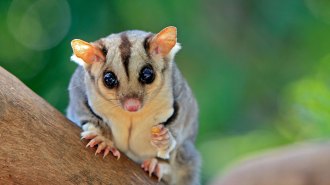 Animals
AnimalsLong considered loners, many marsupials may have complex social lives
Some marsupials may be more sociable than previously thought, opening the door to a possible deep legacy of social organization systems in mammals
By Jake Buehler -
 Animals
AnimalsThese devices use an electric field to scare sharks from fishing hooks
SharkGuard gadgets work by harnessing sharks’ ability to detect electric fields. That could save the animals’ lives, a study suggests.
-
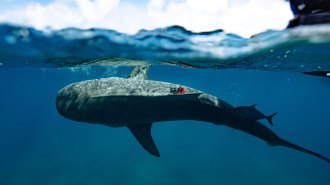 Ecosystems
EcosystemsTiger sharks helped discover the world’s largest seagrass prairie
Instrument-equipped sharks went where divers couldn’t to survey the Bahama Banks seagrass ecosystem.
By Nikk Ogasa -
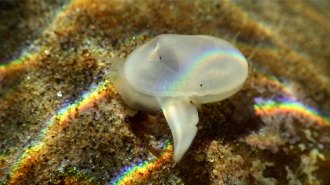 Animals
AnimalsA clam presumed extinct for 40,000 years has been found alive
The reappearance of living Cymatioa cooki clams places it among a group of back-from-the-dead creatures dubbed the Lazarus taxa.
-
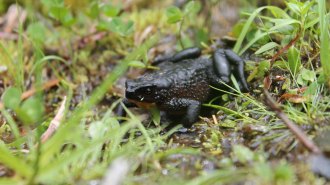 Animals
AnimalsSome harlequin frogs — presumed extinct — have been rediscovered
Colorful harlequin frogs were among the hardest hit amphibians during a fungal pandemic. Some species are now making a comeback.
By Freda Kreier -
 Animals
AnimalsDeer-vehicle collisions spike when daylight saving time ends
In the week after much of the United States turns the clock back, scientists found a 16 percent increase in crashes between vehicles and deer.
-
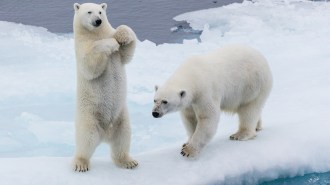 Animals
AnimalsHere’s how polar bears might get traction on snow
Microstructures on the Arctic animals’ paws might offer extra friction that keeps them from slipping on snow, a new study reports.
By Meghan Rosen -
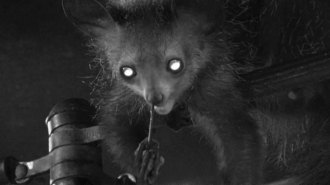 Animals
AnimalsBizarre aye-aye primates take nose picking to the extreme
A nose-picking aye-aye’s spindly middle finger probably reaches all the way to the back of the throat, CT scans suggest.
-
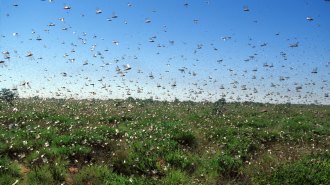 Animals
AnimalsInsect swarms might generate as much electric charge as storm clouds
Honeybees flying over a sensor measuring atmospheric voltage sparked a look into how insect-induced static electricity might affect the atmosphere.
-
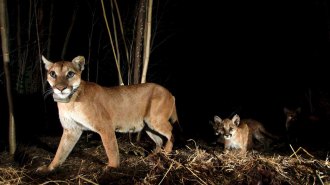 Animals
AnimalsMountain lions pushed out by wildfires take more risks
A study tracking mountain lions showed that after an intense burn, the big cats crossed roads more often, raising the risk of becoming roadkill.
-
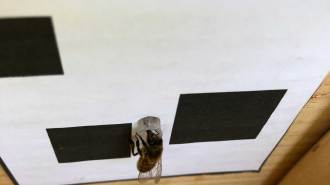 Animals
AnimalsHoneybees order numbers from left to right, a study claims
In experiments, bees tend to go to smaller numbers on the left, larger ones on the right. But the idea of a mental number line in animals has critics.
-
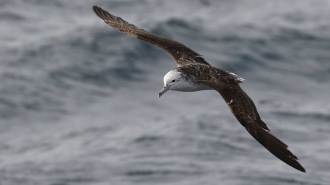 Animals
AnimalsSome seabirds survive typhoons by flying into them
Streaked shearwaters off the coast of Japan soar for hours near the eye of passing cyclones as a strategy to weather the storm.
By Freda Kreier